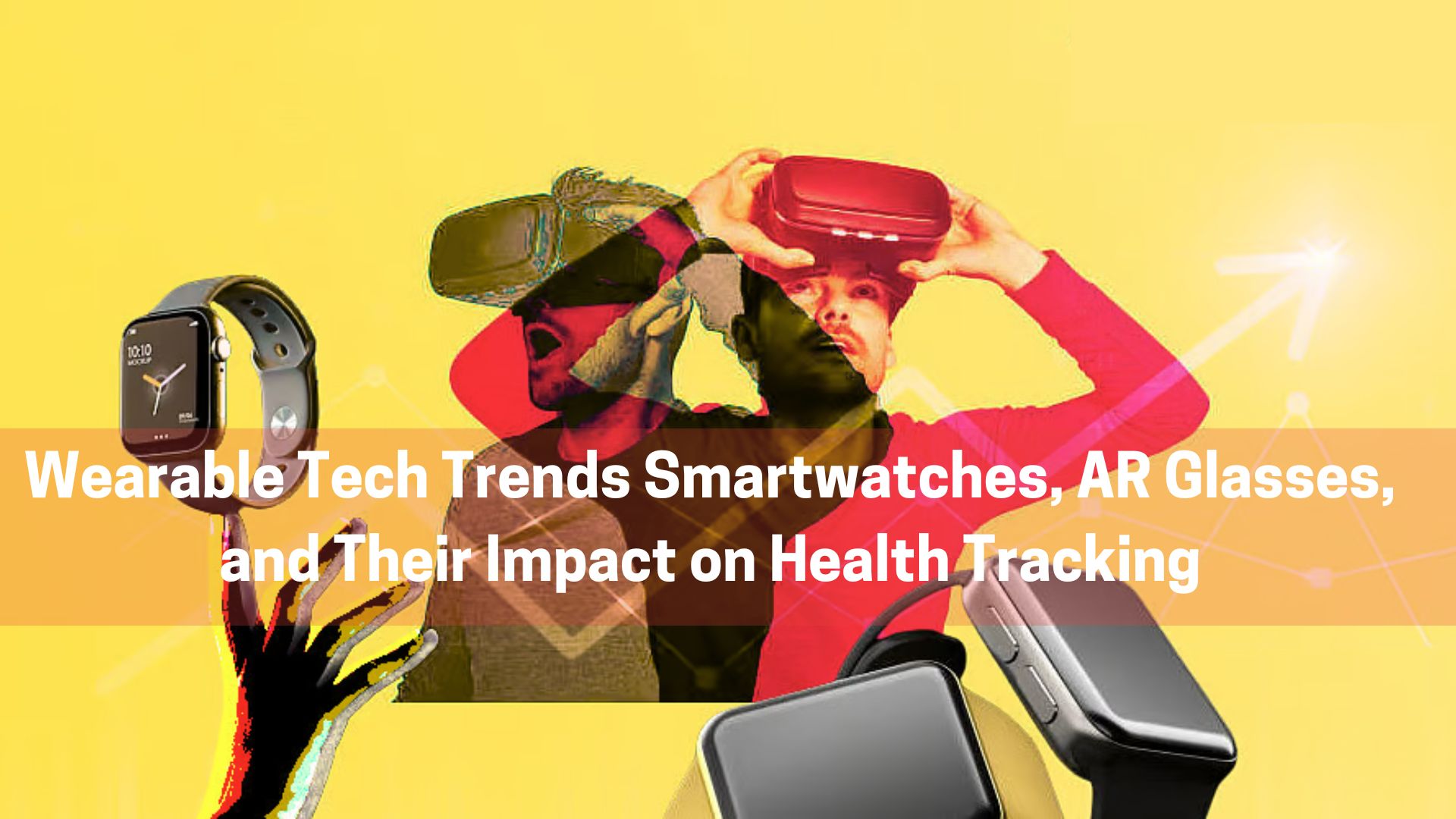Wearable technology is rapidly evolving, transforming how we monitor health, fitness, and daily activities. From advanced smartwatches to next-gen AR glasses, 2025 is set to bring innovations that will redefine health tracking. Here’s what to expect.
1. Smartwatches: The Next Evolution in Health Tracking
Smartwatches have advanced beyond simple step counting and heart rate monitoring. The next generation will include:
Non-Invasive Glucose Monitoring
- Apple, Samsung, and Fitbit are working on blood sugar tracking without the need for finger pricks.
- A major advancement for diabetics and fitness enthusiasts monitoring energy levels.
Advanced Heart Health Monitoring
- AI-powered ECG and AFib detection for early signs of heart issues.
- Blood pressure tracking without external cuffs.
Improved Sleep Analysis
- AI-driven sleep coaching with real-time oxygen level and sleep stage tracking.
- Smart temperature adjustments to enhance sleep quality.
Mental Health & Stress Management
- Cortisol level tracking to detect stress and burnout.
- Haptic feedback for meditation and breathing exercises to reduce anxiety.
2. AR Glasses: The Future of Health & Fitness
Augmented Reality (AR) glasses are making a comeback, with health applications leading the way.
Real-Time Fitness Guidance
- AR overlays for workouts, providing real-time posture correction.
- Personalized running coach with optimal pace, hydration reminders, and recovery tips.
Health Alerts & Biometrics
- Eye strain detection for users spending long hours on screens.
- Blood oxygen and hydration level indicators for athletes and adventurers.
Assisting Medical Professionals
- Remote AR consultations for doctors diagnosing patients in real-time.
- AR-guided surgical procedures for enhanced precision.
3. Wearable Smart Rings & Patches
Beyond watches and glasses, smart rings and biosensor patches are emerging as discreet health-tracking devices.
Smart Rings
- Track heart rate variability (HRV) and recovery in real time.
- Seamless sleep tracking without the bulk of a smartwatch.
Biosensor Patches
- Continuous glucose and hydration monitoring for athletes.
- Personalized nutrition tracking based on sweat analysis.
4. The Rise of AI in Wearable Health Tech
AI will play a critical role in wearable health devices, offering:
- Predictive health analytics that warn of potential illnesses.
- Personalized health recommendations, suggesting exercise routines, sleep habits, and diet plans.
- Automatic emergency alerts detect falls, heart attacks, or dangerous oxygen levels and notify emergency contacts or medical teams.
5. The Future of Wearable Tech in Healthcare
With these innovations, wearables will move beyond fitness and become essential healthcare tools. In 2025, we can expect:
- Insurance companies offer discounts for users who share wearable health data.
- Integration with virtual hospitals, allowing real-time monitoring of patients at home.
- Increased focus on cybersecurity as wearables collect sensitive health data.
Which Brands Are Leading the Way?
- Apple – Apple Watch Series 10 with blood sugar monitoring and stress detection.
- Samsung – Galaxy Watch 7 focuses on AI-driven heart health tracking.
- Google & Fitbit – More advanced fitness coaching and AI-powered health insights.
- Meta & Microsoft – AR glasses for fitness, mental health, and medical applications.
- Oura & Whoop – Smart rings evolving for better sleep and recovery tracking.
Final Thoughts: A Healthier Future with Wearables
Wearable tech in 2025 will go beyond convenience—it will save lives, optimize fitness, and revolutionize healthcare. With AI-powered analytics, AR guidance, and next-gen biosensors, wearable devices will become more intelligent and impactful than ever before.
Which wearable tech innovation are you most excited about? Let’s discuss this in the comments.

